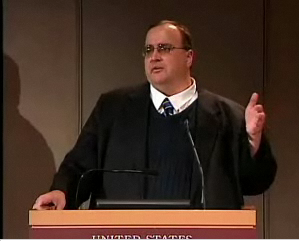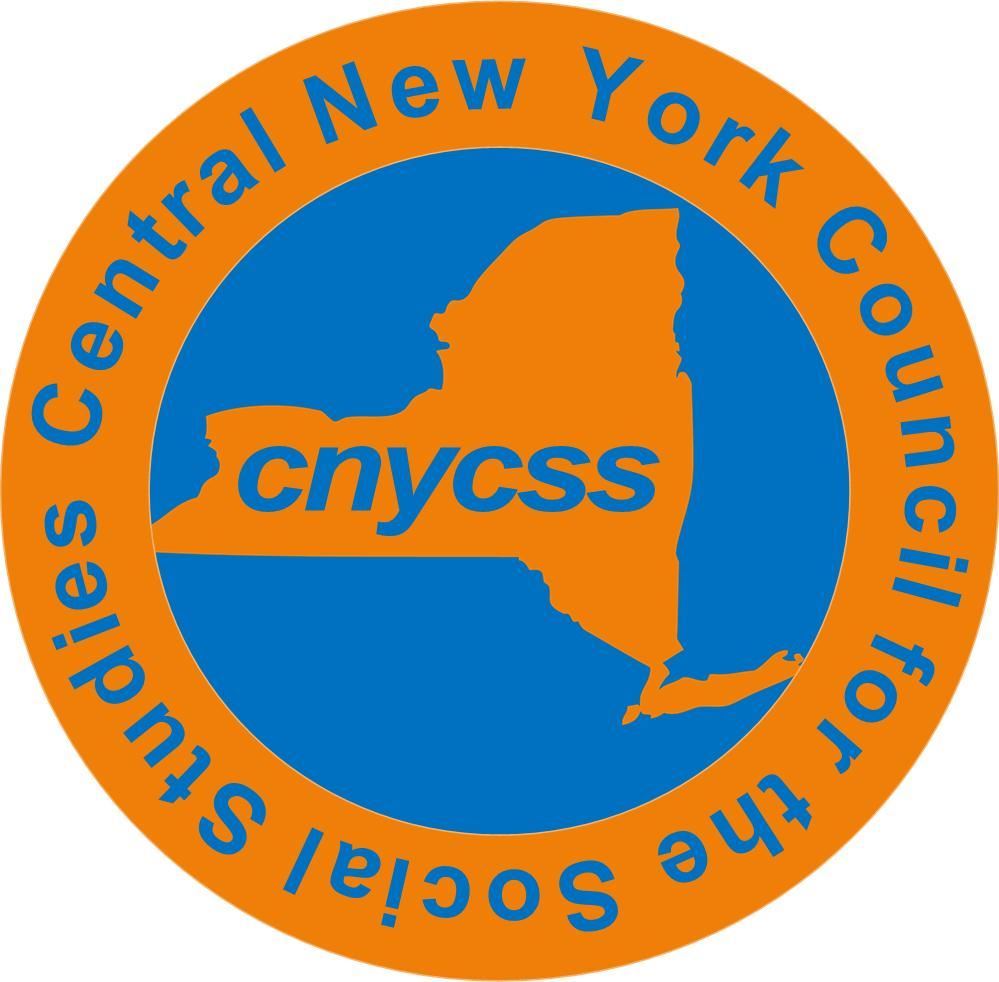
HANDOUTS FROM THE CONFERENCE
Indigenous Wars.pdf
SOUTH ASIA CENTER RESOURCES.pdf
CHINAANDAFRICAaselectedbibliography.pdf
Also, if you're looking for more information on any of the speakers you attended, please scroll below to find added websites with more information about the speakers and/or the organizations they represent.
Indigenous Wars.pdf
SOUTH ASIA CENTER RESOURCES.pdf
CHINAANDAFRICAaselectedbibliography.pdf
Also, if you're looking for more information on any of the speakers you attended, please scroll below to find added websites with more information about the speakers and/or the organizations they represent.
http://www.ushmm.org/
WILLIAM F. MEINECKE, JR.; HISTORIAN
NATIONAL INSTITUTE FOR HOLOCAUST EDUCATION
UNITED STATES HOLOCAUST MEMORIAL MUSEUM
William Frederick Meinecke, Jr. is a native of Baltimore, Maryland who received his BA in German and History from the University of Maryland, following which he received his MA at the Universities of Bonn and Berlin, Germany, returning to College Park, Maryland where he earned his Ph.D in History from the University of Maryland.
He joined the staff of the Wexner Learning Center of the U.S. Holocaust Memorial Museum in Washington, DC. He was on the design team of the Center's Holocaust multi-media program, THE HISTORICAL ATLAS OF THE HOLOCAUST (Book and CD-ROM) and the student-learning Holocaust website. Joining the staff of the Museum's Education Devision, Meinecke has spent the last ten years working with law-enforcement officers, judges, prosecutors and attorneys in the Law, Justice, and the Holocaust program. He is currently working in the National Institute for Holocaust Education for adult professionals. His book, NAZI IDEOLOGY AND THE HOLOCAUST was published by the Museum in December, 2007.
Dr. Meinecke's Keynote presentation is titled: Professional Ethics: Teaching in Nazi Germany, 1933-1945. In this presentation, he will briefly discuss the rationale for teaching about the Holocaust in the United States today, and explore more deeply the challenges and dilemmas faced by non-Nazi educational professionals working in a racist, National Socialist state. Special attention will be given to the context within which teachers made decisions in the day-to-day operation of their classrooms, the nazification of education in Germany after Hitler rose to power in 1933 and the complicity of educational professionals in the Holocaust.
_____________________________________________________________________________
9:35 - 9:50 STATE ED UPDATE - EMPIRE ROOM
ALL ROOMS FOR THE SESSIONS WHICH FOLLOW ARE ANNOUNCED AT THE REGISTRATION TABLE.
_____________________________________________________________________________
10:00 - 10:50 SESSION A
A1 - FIFTY YEARS LATER - THE 1960 PRESIDENTIAL ELECTION John Langdon, Le Moyne College
http://www.lemoyne.edu/UNDERGRADUATE/History/Faculty/tabid/950/Default.aspx
http://www.lemoyne.edu/UNDERGRADUATE/History/Faculty/tabid/950/Default.aspx
The epic Kennedy-Nixon battle for the Presidency marked in watershed in American political history - or did it? Looking back after fifty years, how much did that campaign change the way in which we select Presidents? How different WERE the positions taken by Kennedy and Nixon?
Why and how did Kennedy win?
A2 - WATER RIGHTS - THE NEXT BIG GLOBAL FLASHPOINT? Donald Siegel, Syracuse University
http://earthsciences.syr.edu/People/Faculty/Siegel/siegel.html
http://earthsciences.syr.edu/People/Faculty/Siegel/siegel.html
Increasing concerns are being voiced by economists, climatologists, political experts and historians about the so-far quiet but increasing number of conflicts developing throughout the world regarding Water Needs and Rights. These conflicts are increasingly promoting divisions
WITHIN countries (the United States, for one) and BETWEEN countries (Turkey and its neighbors) Some observers fear that the demand and the need for water may soon be just as potentially incendiary as the need and demand for oil is now. What are the prospects in an increasingly competitive global community?
THE IDEA OF AMERICA is a digital American History program designed to inspire and prepare high school students for active citizenship. Created by the Colonial Williamsburg Institute Foundation, this digital text presents our nation's rich history from its earliest beginnings to the 21st century. The program connects students to the insppiring story of how each generation of Americans faces challenges and makes choices that shape our nation's history. This program provides the knowledge and skills that students need to fulfill the duties of citizenship in our participatory democracy. Students analyze, debate, and form opinions so that they can help make the decisions that will guide our communities and our nation.
A4 - TEACHING JEWISH STUDENTS IN NAZI GERMANY:1933-1938 Will Meinecke, US Holocaust Memorial Museum
Using Holocaust survivor testimony from the Shoah Foundation Institute, we will examine some examples of decisions made by individual teachers in Nazi Germany. Even in the context of the Nazi dictatorship, it was the classroom teacher who determined for Jewish students whether
school was a relatively safe and secure haven for learning or an arena for persecution.
_____________________________________________________________________________
11:00-11:50 SESSION B
B1 - THE CONFEDERACY AND THE HISTORY OF THE CIVIL WAR Douglas R. Egerton, Le Moyne College
http://www.lemoyne.edu/UNDERGRADUATE/History/Faculty/tabid/950/Default.aspx
http://www.lemoyne.edu/UNDERGRADUATE/History/Faculty/tabid/950/Default.aspx
In a era of renewed controversy about the History of the American Civil War, this presentation will look at the Election of 1860 and the secession of the Southern states, as well as what the white Southern leadership was up to, and how Confederate History Month is an attempt at very worrisome revisionist history. (with current implications?) Dr. Egerton's scholarship focuses on the intersection of Race and Politics in early America..
B2 - INDIA AND THE FUTURE OF DEMOCRACY AND CAPITALISM Dr. Subho Basu, Syracuse University & Anirban Acharya, SU PhD candidate
Dr. Basu and Mr. Acharya will trace the history and development of Indian capitalism from Nehruvian state-led planning to the liberalization of the economy during the 1990s. How have these policies of liberalization affected informal economies? How does Indian capitalism differ from the United States model? How does it differ from current Chinese economic policies? What will be the effect on India's neighbors?
B3 - IMPLEMENTING DIFFERENTIATED INSTRUCTION INTO YOUR CLASSROOM Gail Goff, Baker High School, Baldwinsville
Over the course of the last two years, soome members of the Baker High School Social Studies Department have been investigating and implementing various aspects of Differentiated Instruction. These include, but are limited to, giving a grade of Not There Yet, the use of flexible deadllines, giving tests ahead of time and other non-traditional procedures. The practitioners will give a presentation which will be followed by a robust question and answer
session with the audience.
B4 - BENEFITS AND CHALLENGES OF TEACHING IN A RURAL SETTING Amy Schutt, SUNY Cortland, John Shedd, SUNY-Cortland, Shannon Forrest, DeRuyter Middle School, Sheila Knight, Homer High School. Then, there are our three student interns: Lisa DelMedico, Tonya Roycraft, and Stephen Bradley.
This presentation will focus on the unique challenges and positive experience of teaching in rural schools. While we often hear about students in Urban Settings and Suburban Communities, we rarely hear about what many of our colleagues in New York State and elsewhere have discovered - that teaching in rural communities provides very special opportunities for both student and teacher development and satisfaction.
___________________________________________________________________________
NOON- 1:00 LUNCH AND BRIEF ANNOUNCEMENTS
___________________________________________________________________________
1:20 - 2:10 SESSON C
C1 - EDUCATION AND ENTERTAINMENT IN THE AGE OF DIGITAL MEDIA Dr. Robert Thompson, Syracuse University
http://newhouse.syr.edu/Faculty_Staff/Bio/index.cfm?id=136
http://newhouse.syr.edu/Faculty_Staff/Bio/index.cfm?id=136
Often interviewed on television himself, Dr. Thompson will examine the massive cultural forces that have emerged in the past decade with the introduction of new media from on-line video to Twitter to DVR. How are these developments being used and abused in traditional academic and entertainment contexts, and how are they impacting our Political, Religious, and Social Institutions?
C2 - CHINA AND AFRICA: AN UNDEFINED PARTNERSHIP Matt Carotenuto, St. Lawrence University
http://www.stlawu.edu/academics/programs/history/directory/152
http://www.stlawu.edu/academics/programs/history/directory/152
Since 2000, chinewse investment in Africa has risen by over 1000%, with some scholars estimating that nearly a million Chinese nationals are currently working on that continent. While many dismiss this growing trade of infrastructure projects for access to Africa's raw materials and markets as a colonial endeavor, others view the Sino-African relationship as an attractive alternative the strict pre-conditions of Western aid. What are the social
and economic implications of China's new role in Africa? Is Chinese involvement there changing the balance of power in the politics of development in Africa?
C3 - OUR ECONOMIC FUTURE - LESSONS FROM ADAM SMITH Dr. Jerry Evensky, Syracuse University
http://www.maxwell.syr.edu/faculty.aspx?id=6442451321
http://www.maxwell.syr.edu/faculty.aspx?id=6442451321
This presentation will look at how Adam Smith understood the rise and fall of nations and the insights his work might offer for the future of some modern nations, including the United States, in our current unsettled (and uncharted) economic setting.
C4 - INDIGENOUS CONFLICTS - THE UNEXPECTED TOPIC OF OUR TIME? Chuck Coon, CNYCSS Board Member, Editor and Former President
This past summer, there was a major controversy about members of the Haudonausee using their own passports to attend a lacrosse tournament in England. In New Zealand, the Maori have until recently been treated as second-class citizens but now their rights and their culture are being widely recognized and even emulated. In our own early history, we have examples such as the Pueblo Uprising against the Spanish and the "Indian Wars" in our own West as examples of how "original people" have sought to protect their cultures against interlopers from other lands and cultures.We will look at
some of these conflicts, as they played out, and as they are PLAYING out in Africa, North America and Asia.


